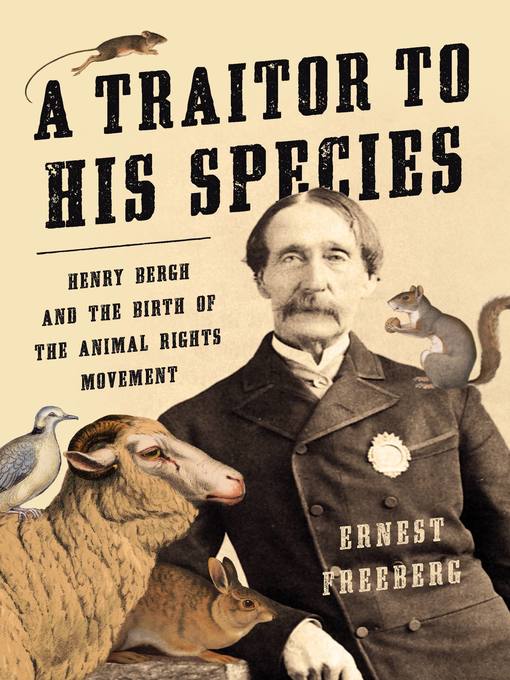
A Traitor to His Species
Henry Bergh and the Birth of the Animal Rights Movement
کتاب های مرتبط
- اطلاعات
- نقد و بررسی
- دیدگاه کاربران
نقد و بررسی

June 22, 2020
University of Tennessee historian Freeberg (The Age of Edison) delivers an evocative biography of Henry Bergh (1813–1888), founder of the American Society for the Prevention of Cruelty to Animals. The heir to an industrial fortune, Bergh founded the ASPCA in New York in 1866, and over the next two decades led nationwide animal rights campaigns. Drawing parallels between animal welfare and abolitionism, Bergh convinced New York lawmakers to criminalize animal cruelty and empower ASPCA officers to intervene in cases of abuse. Though the law had wide public and official support when it came to obvious cases such as abandoning old livestock to die of starvation, Bergh pushed for anticruelty measures to be applied to more commonly accepted practices, including dogfighting, rat baiting, and shipping turtles upside down and bound together with rope that “pierced through their flippers, creating wounds that still oozed after weeks at sea.” Bergh’s crusades, many of which pitted him against circus impresario P.T. Barnum, often made him a figure of public ridicule, Freeberg writes, but were part of a rising new belief that “cruelty was a social problem that could and must be addressed.” Freeberg marshals a wealth of detail in tracking Bergh’s campaigns and paints a vivid picture of Gilded Age America. Animal lovers and history buffs will savor this immersive account.

August 1, 2020
The stirring life of the founder of the American Society for the Prevention of Cruelty to Animals. Humans have always exploited animals for energy, food, companionship, and entertainment. By the 19th century, American cities teemed with their numbers, diseases, and smells, and they continued to be treated as insensible entities to be eaten or exploited. After discussing these issues in the preface, Freeberg, who heads the history department at the University of Tennessee, begins his vivid, often gruesome account of Henry Bergh (1813-1888), a wealthy New Yorker who accomplished little of note until, at age 52 (according to his own account), he found his life's mission: ending animal cruelty. In 1866, he persuaded New York to incorporate his American Society for the Prevention of Cruelty to Animals. With no money appropriated, it seemed a harmless gesture to legislators, but Bergh had included a feature absent from previous, unenforceable state laws: The society could arrest and prosecute offenders. No shrinking violet, Bergh went into action and soon became a wildly popular and reviled media figure. With few exceptions, readers will support his crusades, well-delineated by Freeberg, but Bergh faced an avalanche of abuse and lost as many prosecutions as he won. Most readers will quail at the casual cruelty that Freeberg describes and that Victorians took for granted: Cattle shipped from the Midwest spent a week packed into freight cars with no food, water, or room to lie down. Slaughterhouse workers began work while the animals were still alive, and children gathered to watch. Stray dogs were often drowned. Healthy horses worked until feeble and were then sold to people too poor to afford a healthy horse, so they worked them to death. Dogfights and cockfights entertained the poor, and the rich slaughtered and crippled thousands of birds in live pigeon-shooting contests. Upon Bergh's death, most states were enforcing ASPCA-backed anti-cruelty laws, and universal feeling that animals did not suffer had become a minority view. A successful effort to make a splendid American crusader better known.
COPYRIGHT(2020) Kirkus Reviews, ALL RIGHTS RESERVED.

























دیدگاه کاربران